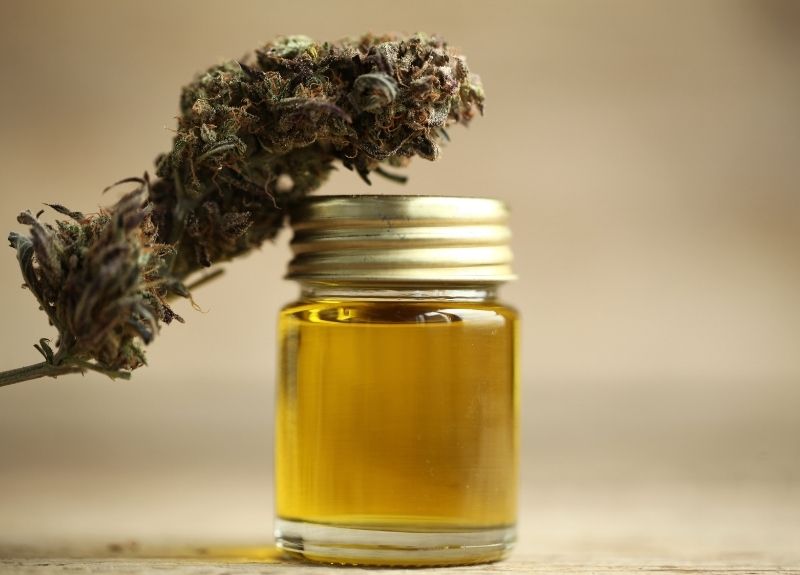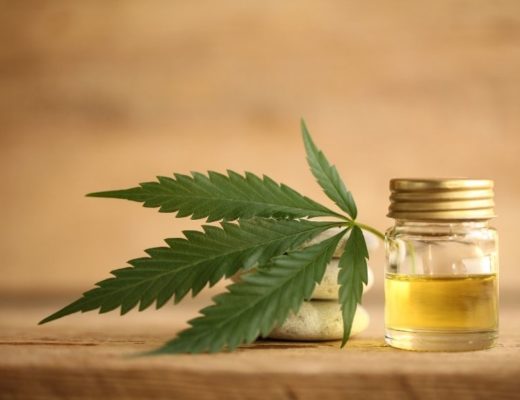It’s no secret that cannabis is popular—the potent plant has been around for thousands of years. The resinous flowers produce over 500 naturally occurring chemical compounds, including over 125 phytocannabinoids. Of these compounds, CBD and THC are the most well-known and most studied. Keep reading to find out more about CBD vs. THC.
Benefits and Side Effects of CBD
In this section, we will go over the most common Benefits and Side Effects of CBD.
What is CBD?
CBD is one of the phytocannabinoids produced by cannabis and hemp plants. Also known as cannabidiol, it’s a non-psychoactive compound with an extensive array of medical benefits.
For example, CBD is most commonly used for pain and inflammation relief, reducing anxiety, and improving sleep quality. Another benefit in the U.S. is CBD is federally legal in the U.S. and widely available throughout North America and the world. You can vape CBD, take it as a tincture, edible, capsule, or apply the compound topically for localized relief.
CBD Benefits for Anxiety
The potent non-intoxicating compound is beneficial for managing anxiety. Research shows CBD works by increasing the presence of the neurotransmitter serotonin in brain cells, which can lead to reduced feelings of stress and anxiety. CBD is known to help users relax, sleep better, and feel happier.
 CBD Benefits for Pain and Inflammation
CBD Benefits for Pain and Inflammation
CBD can be used to treat a wide range of conditions that cause pain and inflammation. The cannabinoid’s potential to reduce inflammation benefits those with arthritis, inflammatory bowel disease, and many chronic pain disorders.
It works by directly interacting with the CB2 receptors in our body, which are found throughout the body, including the immune and central nervous systems.
CBD for Sleep
Another CBD benefit is the ability to promote a better night’s sleep. CBD acts on serotonin receptors in your brain, which aid with melatonin production.
CBD stimulates the release of melatonin, which helps regulate your sleep-wake cycles by keeping you in a more restful state throughout the night. CBD is considered an effective sleep aid that can help you fall asleep faster, stay asleep longer, and wake feeling refreshed.
CBD Side Effects
By and large, CBD is well tolerated by users. The compound only has mild, infrequent adverse responses, including nausea, diarrhea, and drowsiness. However, you should speak with your doctor before adding any new supplements. The cannabinoid might interact with some medications, and your physician can adjust your prescriptions to account for daily CBD use.
 Benefits and Side Effects of THC
Benefits and Side Effects of THC
In this section, we will go over the most common Benefits and Side Effects of THC.
What is THC?
THC is the other major phytocannabinoid produced by cannabis. Also known as tetrahydrocannabinol, it’s a psychoactive compound that interacts with the body’s endocannabinoid system.
THC can elicit euphoric feelings or get you “high” by interacting with brain cell receptors that influence the release of neurotransmitters. THC is commonly used for recreational reasons. However, THC has medicinal value too.
THC Benefits for Pain and Inflammation
Like CBD, THC has anti-inflammatory properties. Research suggests the cannabinoid can reduce pain by suppressing nerve signals that tell pain receptors to activate. Clinical trials have shown THC may effectively reduce chronic pain, neuropathic pain, and other types of long-term discomfort.
 THC Benefits for Nausea and Vomiting
THC Benefits for Nausea and Vomiting
Medical research shows patients suffering from nausea and vomiting can benefit from THC. The cannabinoid is a powerful anti-emetic that works by halting nausea signals in the brain and initiating feelings of fullness. THC is a common remedy for side effects in cancer patients undergoing chemotherapy.
THC Benefits for Sleep
The psychoactive cannabinoid is also a relaxation aid. THC can help users fall asleep and stay asleep by activating CB1 receptors. Research has shown THC makes falling asleep easier, reduces the number of times you wake throughout the night, and can improve the overall quality of your sleep.
THC for Focus
THC also has another surprising benefit: improved attention and focus. Research has found that cannabinoids can decrease activity in some areas of the brain to help users concentrate.
While researchers are still looking into the chemical compounds that make this happen, studies suggest THC could be a viable treatment for ADD/ADHD. THC also has shown promising results in treating these types of impulse-control disorders.
 THC Side Effects
THC Side Effects
Like CBD, THC is generally well tolerated. However, there are some potential side effects you should be aware of before using THC or any other cannabinoid.
THC is a psychoactive
cannabinoid and can lead to feelings of anxiety or paranoia in some users. You should avoid consuming too much THC if you’re a new user.
CBD Vs. THC: Which Is Better?
Scientists are still researching the effects of CBD vs. THC. It’s generally agreed that THC and CBD have different effects on the brain and body. Some speculate that THC may be a more effective treatment for some conditions, while CBD may provide better relief for other symptoms. Most experts agree the compounds work best together.
Today, researchers are studying how cannabinoids work together to treat medical conditions. They’re also creating unique cannabinoid blends that can help patients suffering from multiple diseases and disorders. Both CBD and THC have potential medicinal value. As research continues, we should learn more about this cannabinoid and how it can help users.
This theory is the entourage effect, which means CBD and THC both work better when combined than they would alone. Studies also suggest consumers experience fewer side effects when using a full-spectrum formula over an isolate.
Final Thoughts
CBD and THC are both phytocannabinoids that come from cannabis. CBD is a non-psychoactive cannabinoid with many benefits, while THC can cause feelings of anxiety or
paranoia in some users, depending on the dosage. It’s generally agreed that there may be better treatments for specific conditions.
Still, as research continues, we should learn more about how these compounds work together to treat medical disorders like ADD/ADHD and chronic pain. There’s still much to discover when it comes to this critical topic.






No Comments